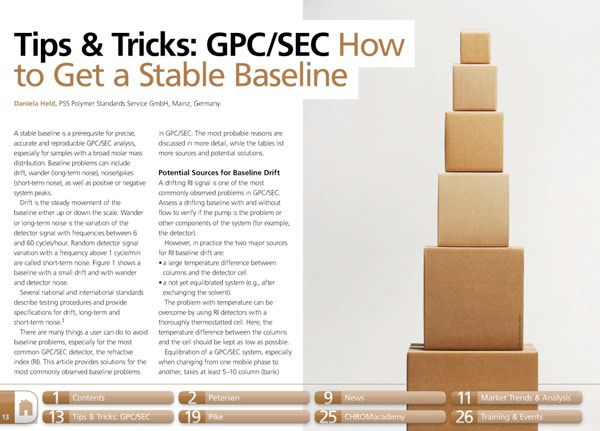Tips & Tricks: GPC/SEC How to Get a Stable Baseline
A stable baseline is a prerequisite for precise, accurate and reproducible GPC/SEC analysis, especially for samples with a broad molar mass distribution. Baseline problems can include drift, wander (long-term noise), noise/spikes (short-term noise), as well as positive or negative system peaks.

A stable baseline is a prerequisite for precise, accurate and reproducible GPC/SEC analysis, especially for samples with a broad molar mass distribution. Baseline problems can include drift, wander (long-term noise), noise/spikes (short-term noise), as well as positive or negative system peaks.
New Method Explored for the Detection of CECs in Crops Irrigated with Contaminated Water
April 30th 2025This new study presents a validated QuEChERS–LC-MS/MS method for detecting eight persistent, mobile, and toxic substances in escarole, tomatoes, and tomato leaves irrigated with contaminated water.
Accelerating Monoclonal Antibody Quality Control: The Role of LC–MS in Upstream Bioprocessing
This study highlights the promising potential of LC–MS as a powerful tool for mAb quality control within the context of upstream processing.
University of Tasmania Researchers Explore Haloacetic Acid Determiniation in Water with capLC–MS
April 29th 2025Haloacetic acid detection has become important when analyzing drinking and swimming pool water. University of Tasmania researchers have begun applying capillary liquid chromatography as a means of detecting these substances.

.png&w=3840&q=75)

.png&w=3840&q=75)



.png&w=3840&q=75)



.png&w=3840&q=75)











